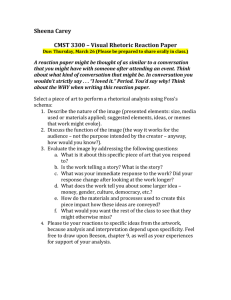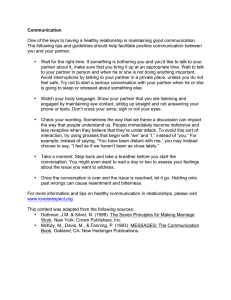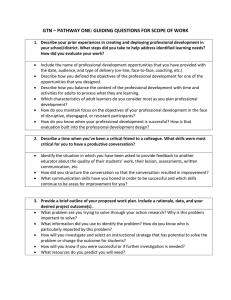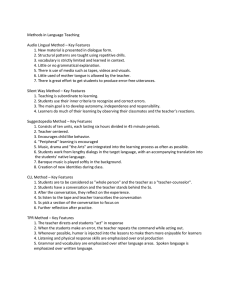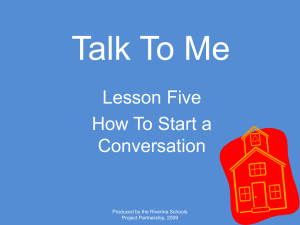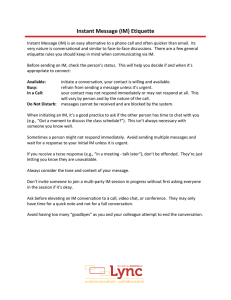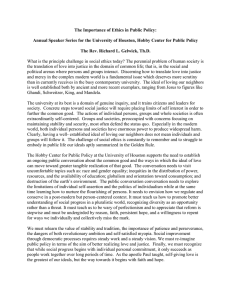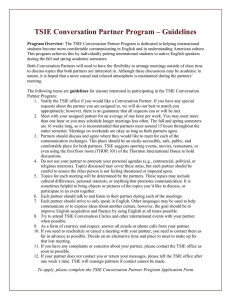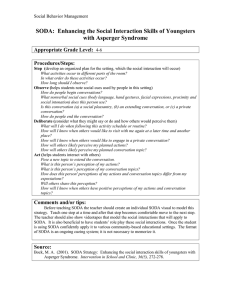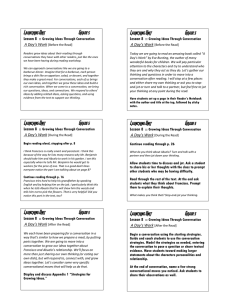How to communicate with your child
advertisement
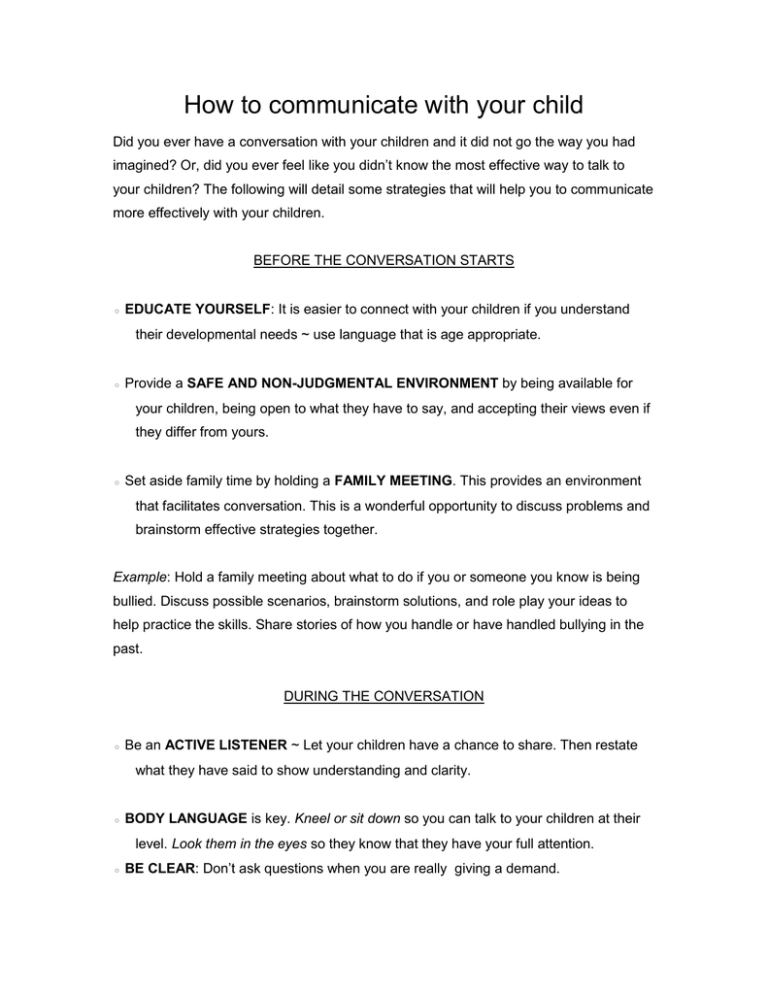
How to communicate with your child Did you ever have a conversation with your children and it did not go the way you had imagined? Or, did you ever feel like you didn’t know the most effective way to talk to your children? The following will detail some strategies that will help you to communicate more effectively with your children. BEFORE THE CONVERSATION STARTS ◦ EDUCATE YOURSELF: It is easier to connect with your children if you understand their developmental needs ~ use language that is age appropriate. ◦ Provide a SAFE AND NON-JUDGMENTAL ENVIRONMENT by being available for your children, being open to what they have to say, and accepting their views even if they differ from yours. ◦ Set aside family time by holding a FAMILY MEETING. This provides an environment that facilitates conversation. This is a wonderful opportunity to discuss problems and brainstorm effective strategies together. Example: Hold a family meeting about what to do if you or someone you know is being bullied. Discuss possible scenarios, brainstorm solutions, and role play your ideas to help practice the skills. Share stories of how you handle or have handled bullying in the past. DURING THE CONVERSATION ◦ Be an ACTIVE LISTENER ~ Let your children have a chance to share. Then restate what they have said to show understanding and clarity. ◦ BODY LANGUAGE is key. Kneel or sit down so you can talk to your children at their level. Look them in the eyes so they know that they have your full attention. ◦ BE CLEAR: Don’t ask questions when you are really giving a demand. Example: Instead of saying: “Would you like to do your homework now?” It would be clearer to say: “Please do your homework now.” This will prevent mixed messages. ◦ Give your children CHOICES as much as possible. This will allow them to feel in control of their life. Example, “You can help with dinner or you can take out the trash.” ◦ Give POSITIVE REINFORCEMENTS: “It must have been difficult to tell me you are having a hard time in math class, but I’m proud that you shared that with me. Now we can work together to figure this out.” Remember, each child is unique and requires different communication needs. For more information about communicating with your children, please contact your school counselor.

